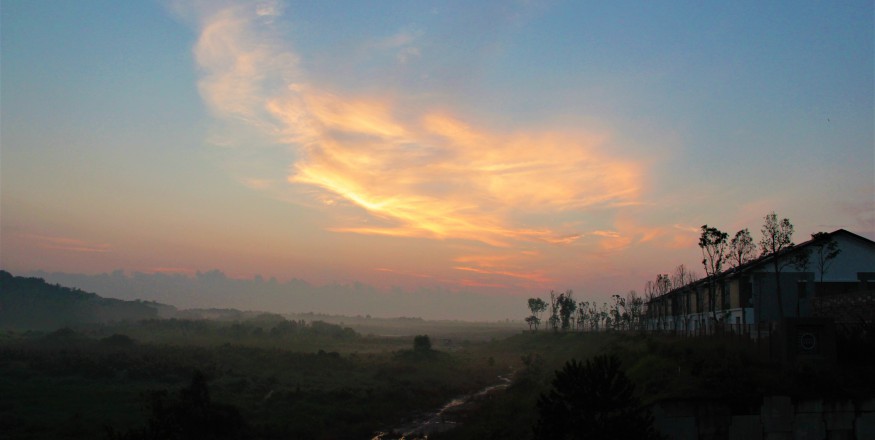The Roman Colosseum was even more breathtaking than the postcards Cay had received from friends. He stood just outside the barrier, soaking in the intricate details. Roman architecture had always triumphed in Cay’s mind—with its endless ruins and rediscovered temples, it felt timeless.
History is beauty. It gave birth to sculptors and craftsmen, creators of everything from wooden idols to towering monuments. Today, those descendants take the shape of abstract statues and glass-and-steel towers, rising into the sky, challenging everything around them—as if to prove humanity’s survival was not in vain.
The queue was long, typical for a Saturday. Crowds filled every open space, except for narrow streets that only the locals seemed to appreciate. Carriages drawn by exhausted horses ambled past. Street vendors, mostly Pakistanis in caps, sold gelato beneath the blistering sun. Tourists looked lost, searching for entrances. It all smudged the romantic image of Rome, but they would have to tolerate it.
Judas placed his backpack, belt, and phone into a grey plastic tub, sliding it onto the conveyor belt. Two security officers watched the X-ray monitor lazily but with trained eyes. Cay followed suit, telling himself this inconvenience was the price for protecting historical heritage. They tightened their belts and stashed their watches and coins in their pockets. Judas didn’t wear a watch. Cay wore his only one—a gift from Jenna, still functional while his others were broken.
Inside the Colosseum, two accessible floors were open to visitors. The first was cramped, a place where four people squeezed into space meant for two. Cay cursed the crowd and sweat, while Judas stayed calm. The second floor, however, was roomier, affording enough space to admire the stone ring once hidden beneath the arena floor. Cay imagined himself a spectator… or perhaps a lion, pacing, hungry, caged.
Around them, guides—either locals or eager volunteers—led small groups, explaining the arena’s history with varying enthusiasm. Despite the noise, both men felt immersed in the ghosts of ancient blood and glory.
Rain started with a drizzle, then poured. Cay and Judas ran out, escaping both the downpour and the crowds. The Colosseum, once a site of spectacle and slaughter, loomed behind them.
The rain eventually stopped, but Cay kept running. Judas followed, trying to match his pace. Something in Cay had changed—a burst of gladiatorial tenacity, moving with elegance and urgency, as if channeling the very spirit of combat.727Please respect copyright.PENANAS47n4mYpeP
Judas hadn’t seen a dead body—yet. After unloading the last boxes from the lorry, he made his way across slippery mud to the administrative tent, which looked sturdier than the rest.
He was assigned to one of the tents wedged between a makeshift medical center and rows of refugee shelters. Inside, he began unpacking. A cheery middle-aged man approached.
“Hi, call me Mark,” the man said, his American accent noticeable but hard to place.
“Judas,” he replied, standing to shake his hand.
“Judas, huh? That’s a name. I won’t ask why—maybe later.” Mark chuckled.
“Any idea what we’ll be doing next? I didn’t memorize the whole schedule,” Judas asked.
“We follow a routine,” Mark said. “Clearing land for new tents, checking provisions, sometimes the unusual.”
“The unusual?” Judas raised a skeptical eyebrow.
“You’ll see. Sooner or later.”
Mark left with a casual “See ya later.” Judas wondered if anyone was too old for that phrase.
Judas’s first task was to check provisions in the refugee tents, ensuring none were missing or stolen. A local translator accompanied him, herself a victim of the crisis. Most tents housed small families—just two or three people. The closeness among strangers unsettled Judas, though he couldn’t tell how they felt. Some had endured worse before the crisis.
The Rohingya had been abandoned by their governments, left stateless on paper and defenseless in reality. Attacked by well-organized militias and ignored by the world, they lived without safety, identity, or hope.
Judas felt pity. He offered words of encouragement when he could, translated by his companion. Most families had what they needed; only a few reported missing items. Judas noted the losses and submitted them to the administrators. He was not allowed to investigate further.
He hated this feeling—not what he saw, but what he couldn’t change.
Dinner was shared with the rest of the camp. Volunteers cooked for everyone, a privilege of sorts. The food was bland, but it filled him. He thought of Sunday roasts with his family in England—he rarely joined them, except when food was on the table, avoiding conversation and scraping every bit of gravy.
Here, there were no Sunday roasts—just the sound of tired people eating under canvas roofs, waiting for another tomorrow that never promised anything better.
727Please respect copyright.PENANA2ZXwPHQkDm






















